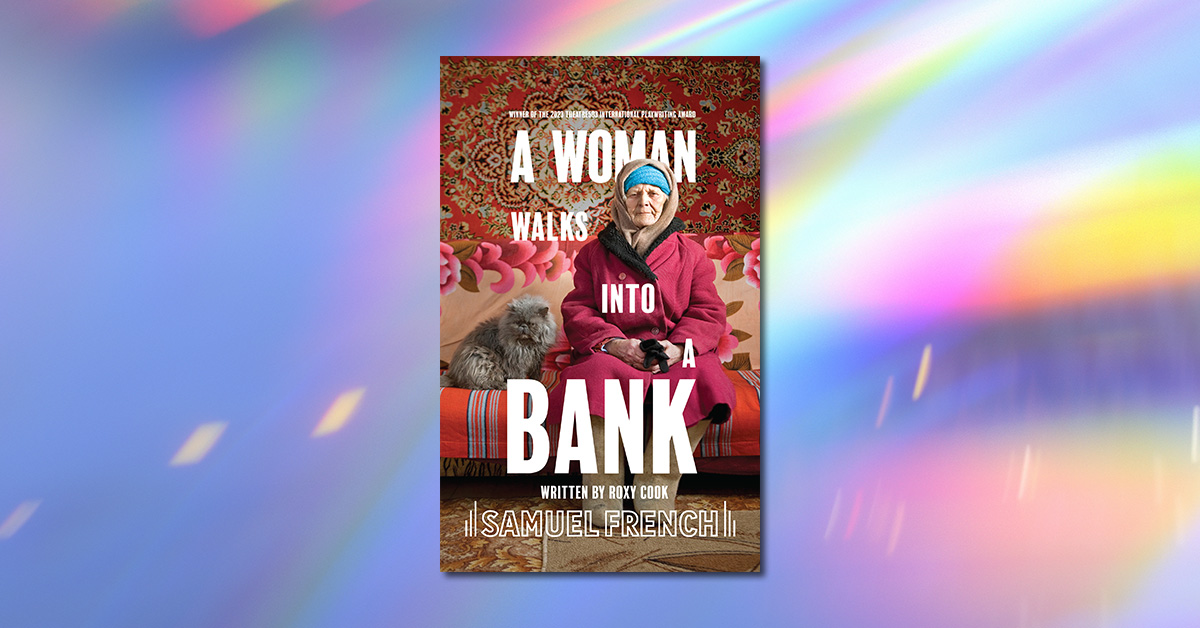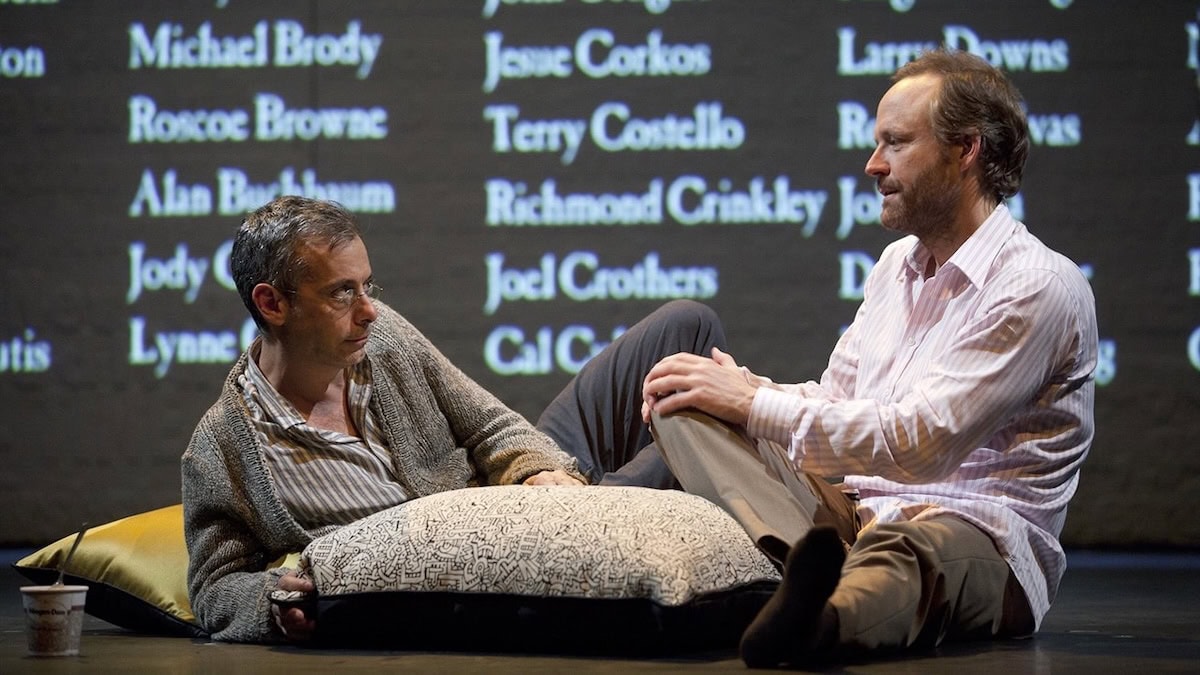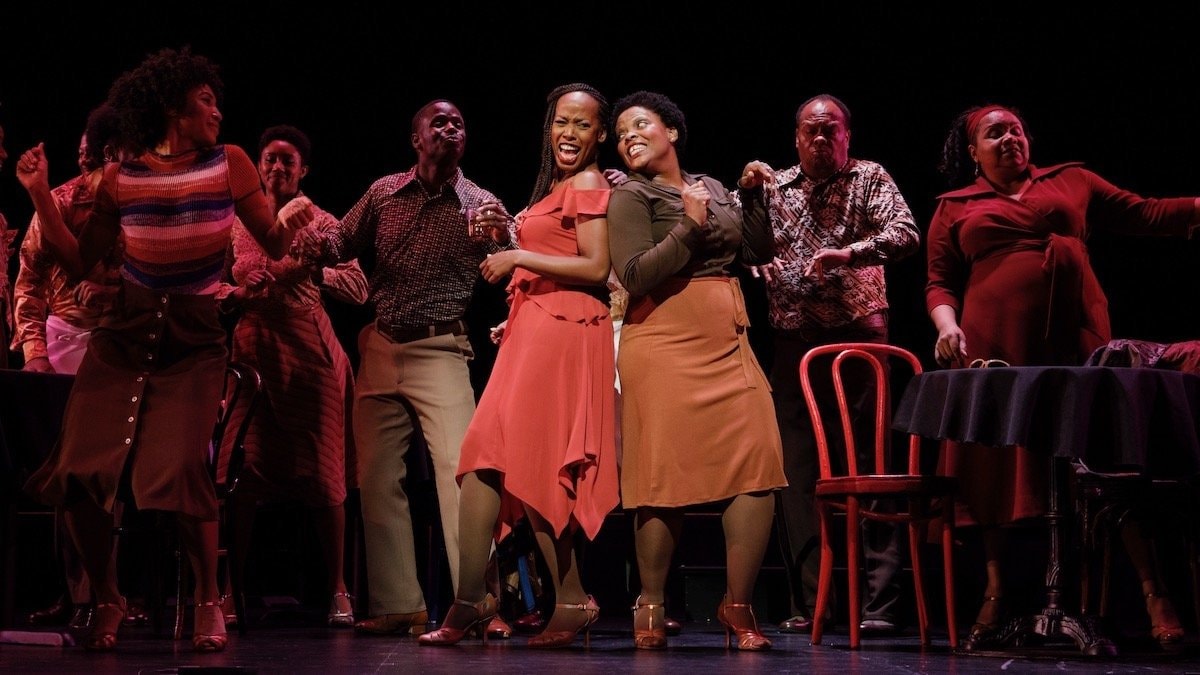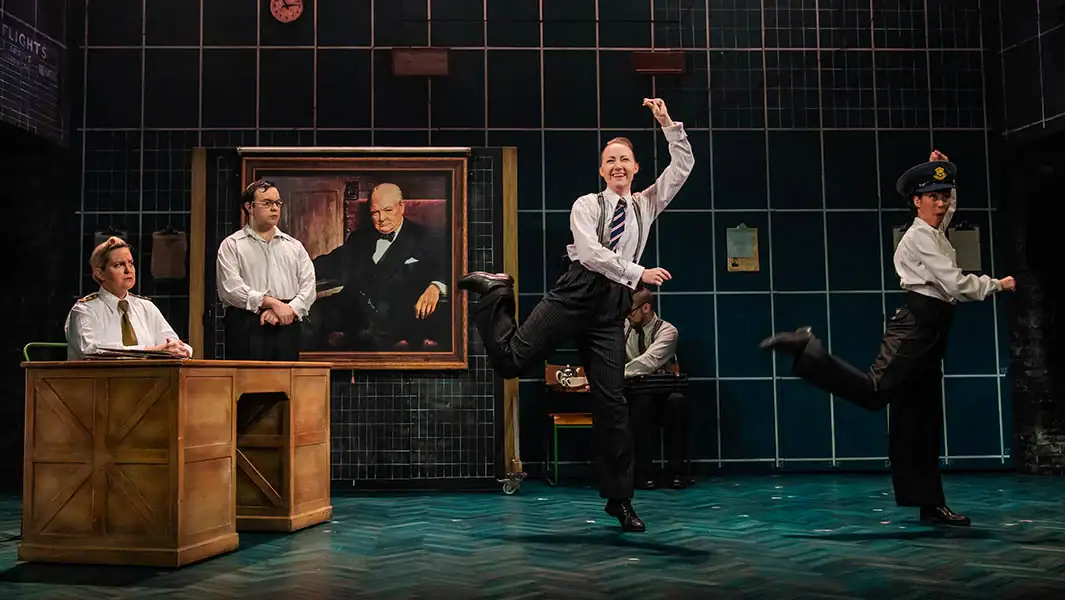
Follow playwright Roxy Cook into the fantastical world of A Woman Walks Into a Bank (UK) – a powerful portrayal of a country in crisis inspired by childhood fairytales, and winner of the 2023 Theatre503 International Playwriting Award. In this Q&A, Cook shares her creative journey from writing the play to directing the production at Theatre 503.
In A Woman Walks Into a Bank, the three actors narrate and share the roles of an old woman, a young bank manager, a middle-aged debt collector and a talking cat. What made you decide to tell the story this way? What were the challenges and rewards of dividing the storytelling and characters among these three actors?
This is a play about how people try to shape, control and defend their own story – and so writing it as a piece of theatrical storytelling was always the plan. Given this, it felt natural for each storyteller to play a variety of roles (along with their “main character” that they align more and more with as the play progresses). The reward is playful theatricality, the challenge is clarity of the layers and personas the storytellers are dipping in and out of.
Sally the cat is such a great and quirky addition to the story. How did you get into the mindset of a cat, creating movement and dialogue for her?
Writing Sally was one of the easier tasks – just all about that sassy, self-important world view. And our lovely associate director and movement director Sam Hooper did years on CATS (US), so we’ve been well covered in terms of tips! We’re not going full Jellicle, but have found a happy middle ground.
The young bank manager and the debt collector both try their best to live their ideal versions of life, while the other characters keep dragging them back into harsh reality. Can you talk a bit about invoking hope and kindness in this play?
I’d felt for a long time that we weren’t hearing stories from or about ordinary Russians, and so the aim was very much to try and get inside their head – to write from the perspective of these two “villains” to try and understand where they were coming from, even if I didn’t always agree with what they were doing. I’m not sure I offer much by way of hope and kindness in the story of this play, but perhaps the act of putting these stories in front of a UK audience is encouraging a kindness and hope in these characters and the future of Russia somewhere…
What was the creative process like, as you created and directed the play with this cast and creative team?
The creative process was a wild ride – although I wrote the play, I still had to as a director figure out what it was about, and how to rehearse it. The process was collaborative, a lot about playing as an ensemble, and trying to pull out layers of meaning from the inside out. And because it’s storytelling in particular, the designers were part of that creative process more so than usual, creating a box of tricks for us to play with.
Are there any particular playwrights or theatre makers who have inspired your writing and the kind of work that you want to make?
Writers who play with form and language like Alice Birch (US) or debbie tucker green. I like work that tries to do something new and doesn’t play it safe – I’d much rather see something I dislike but that has really committed to something.
What do you want audiences to take away from the show?
I want them to feel like they’ve got a flavour of modern Moscow – and a little bit more understanding of what it’s like to live there. But mainly, I would like people to have an entertaining evening.
Congratulations on winning the 2023 Theatre503 International Playwriting Award! What inspiring advice would you give to authors?
No inspiring advice, but my main takeaways from the writing process are: keep coming back to the world, intention and flavour of the piece you want to make – you can always edit story and structure later; read and see lots of other plays, TV shows, films and books; and always ask for notes but remember you don’t need to take all of them, otherwise there will be no deliberate or coherent feel to the piece.
To learn more about A Woman Walks Into a Bank, visit the Concord Theatricals website in the UK.

The Truth Behind… The Normal Heart

Musical Revues

